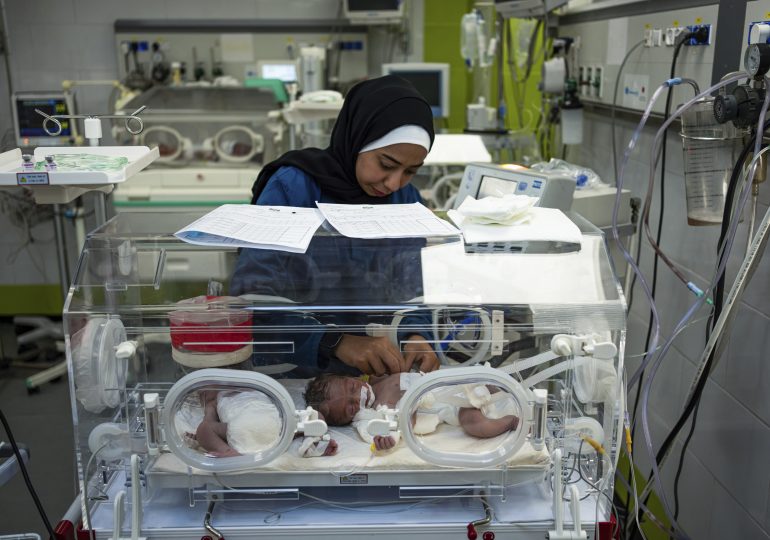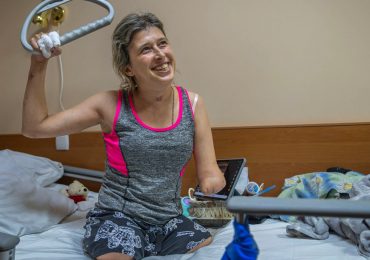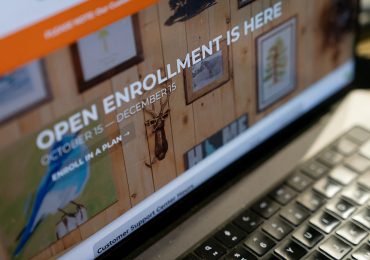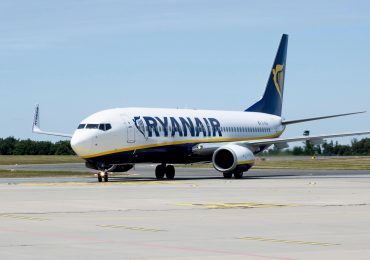Bridget Rochios arrived in Rafah from California on May 1 to volunteer at the Al Halal Al Emirati Maternity Hospital with the Canadian medical charity, the Glia Project. In just one week, the 34-year-old midwife has assisted a displaced mother of two from Gaza with giving birth in a hospital elevator and delivered the baby of a pregnant woman who was brought to the hospital by her neighbor after her entire family was killed in airstrikes. She also treated a woman in labor who did not know her baby suffered from a birth defect because of the lack of diagnostic testing or ultrasounds during her pregnancy; after an emergency C-section, the woman’s baby died the next day.
[time-brightcove not-tgx=”true”]
“The baby’s condition would not have been a death sentence if it were not for this depraved war,” Rochios tells TIME. “There’s no dignified way to be pregnant or to parent when you’re under these conditions.”
Since the war in Gaza began last October, nearly half of Gaza’s 2.3 million population has fled to the southern city of Rafah, which shares a border between the besieged strip and Egypt. There, Emirati has become one of the few remaining hospitals providing medical care to thousands of pregnant women and new mothers, handling around 60 deliveries every day. According to the United Nations Population Fund, or UNFPA,155,000 women are due to give birth in Gaza in the coming months and struggling to survive and access basic healthcare.
Read More: Biden Said Rafah Was a ‘Red Line.’ Now What?
But on Wednesday, May 8, the Emirati Hospital announced it would no longer admit new patients due to a shortage of staff and supplies after the closure of the Rafah border crossing, leaving thousands of pregnant women in limbo. To help fill the gap, UNFPA has stated it will coordinate with humanitarian partners and the Palestinian Ministry of Health to set up alternative health facilities like mobile clinics that can provide different levels of care.
The news follows Israeli threats of a major assault on Rafah to defeat thousands of Hamas fighters it says are hiding in the border city. As a result, around 10,000 Palestinians have fled Rafah since Monday, according to a U.N. agency for Palestinian refugees official.
Though the staff at the Emirati hospital began to evacuate shortly after the news broke, Rochios, who is still there, says the hospital was already overwhelmed by the number of patients and lack of resources. “By the time I arrived, the hospital was pretty unsanitary and I didn’t have all the instruments I need as a healthcare provider to give birth,” Rochios says, noting the lack of soap, gloves and scissors to cut cords.
“There are three women in one delivery room, and after they give birth, they’re moved over to postpartum for a couple of hours,” Rochios continues, “By comparison, in the United States where I work, we keep people in the hospital for a minimum of 24 hours, and usually for two days.” As a result, many mothers and newborns miss crucial maternal and infant bonding steps in the postpartum period like skin-to-skin contact and breastfeeding.
The disrupted access to maternal healthcare has also meant that both mothers and their children are exposed to serious and even life-threatening health risks, leading to a reported rise in obstetric emergencies, as well as infectious diseases like Hepatitis A and a high risk of death among mothers and babies. Once they are released from the hospital after giving birth, they also return to grim conditions in refugee camps that lack basic hygiene. “There’s not enough sanctuary pads or access to clean water and nutritious food, or vitamins that women who are recovering from pregnancy and birth desperately need,” says Rochios.
Until recently, the UNFPA was able to occasionally distribute maternity, postpartum, and reproductive health supplies to Emirati Hospital, in addition to providing one-off cash transfers to vulnerable women. But now, the agency has issued warnings that a ground invasion in Rafah could spell a “catastrophe for traumatized pregnant women and new mothers.”
“An attack in Rafah could turn this and other health facilities from places of hope into rubble and dust—putting at risk the lives of tens of thousands of pregnant women,” it said in a statement.
For Rochios, the fear of a ground invasion in Rafah—which she describes as an “elementary school playground” because of the sheer number of children in the streets—is palpable. The midwife says that in the past few days, she has heard continuous bomb explosions across the city, as well as the constant sound of drones. “Now that the border has closed I’m very fearful of what things will look like even within the next week,” she says.
And so, every time Rochios looks at a baby after helping with the delivery, she wonders: “Are you going to survive the war to see your first birthday?”
Leave a comment








